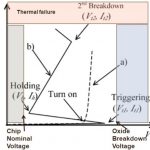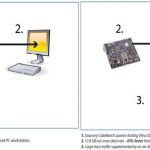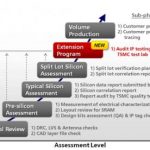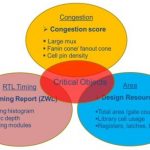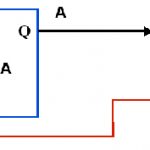There were a number of trends discernible at CES this year, one of the big ones being wearables, especially in the medical and fitness areas. I wear a FitBit Flex and I have, but rarely wear, a Pebble Watch that links to my iPhone. I would say that at this point they are promising but are more gimmicks than truly useful. My Fitbit measures… Read More
Tag: soc
NoC, NoC: Your Chip May Be Under Attack
SoCs face a lot of issues related to security and the Network-on-Chip (NoC) is in a good position to facilitate system-wide services. SoCs are now so complex that one of the challenges is to make sure that the chip does what it is meant to do and doesn’t do what it isn’t meant to do. Just as in software, security used to be … Read More
Cadence & ARM Optimize Complex SoC Performance
Now a day, a SoC can be highly complex, having 100s of IPs performing various functionalities along with multi-core CPUs on it. Managing power, performance and area of the overall semiconductor design in the SoC becomes an extremely challenging task. Even if the IPs and various design blocks are highly optimized within themselves,… Read More
Full Chip ESD Sign-off – Necessary
As Moore’s law keeps going, semiconductor design density on a chip keeps increasing. The real concern today is that the shrinkage in technology node has rendered the small wire geometry and gate oxide thickness (although fine in all other perspectives) extremely vulnerable to ESD (Electrostatic Discharge) effects. More than… Read More
Debugging Complex Embedded System – How Easy?
In today’s world of semiconductor design with SoCs having complex IPs, hardware and software working together on a single chip, it’s hard to imagine a system without embedded software into it. But it is easy to guess how difficult it would be to test that hardware and software embedded system. And often there is limited window of … Read More
TSMC on Semiconductor IP Quality
It is important to note that the System On Chip (SoC) revolution that is currently driving mobile electronics has one very important enabling technology and that is Semiconductor Intellectual Property. Where would we be without the commercial IP market segment? Computers and phones would still be on our desks for one thing, and… Read More
Start With The End In Mind – For Complete & Fast Success!
There is always a rush to converge a semiconductor design toward faster closure, amid increasing divergent trends of multiple IPs and high complexities of various functionalities on a single chip. Every design house struggles hard to evolve its customized design flows with several short paths patched up to fix issues, global… Read More
MEMS in The World of ICs – How to Quickly Verify?
In the modern electronic world, it’s difficult to imagine any system working as a whole without MEMS (Micro-electromechanical Systems) such as pressure sensors, accelerometers, gyroscopes, microphones etc. working in sync with other ICs. Specifically in AMS (Analog Mixed-Signal) semiconductor designs, there can be significant… Read More
Hierarchical Clock Domain Crossing
One of the first blogs I wrote on SemiWiki was on clock domain crossing (CDC). I thought it was rather a specialized subject, a sort of minority interest. It turned out to be one of the most-read blogs I’ve written. Modern SoCs have lots of unrelated clocks, maybe hundreds, and so ensuring that signals going from one clock domain… Read More
How to Simplify Complexities in Power Verification?
With multiple functionalities added into a single chip, be it a SoC or an ASIC, maintaining low power consumption has become critical for any design. Various techniques at the technology as well as design level are employed to accomplish the low power target. These include thinner oxides in transistors, different sections of … Read More



